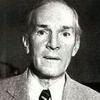Brooke Gladstone appears in the following:
That Little Thing Called "Like"
Friday, October 26, 2012
The Facebook "Like" button has ventured beyond the pages of Facebook. Now, not only can you tell your friends that you "Like" their comments, photos and status updates, you can also tell third-party site how much you "Like" a blog post or news article. Bob explores the meaning of a Facebook "Like."
Life in Facebookistan
Friday, October 26, 2012
Writer Rebecca MacKinnon has compared Facebook to a country, she calls it Facebookistan. Facebookistan has 1 billion people, and an economy that rivals many countries'. Brooke and Bob talk to Jillian York and Clay Shirky about the contours of Facebookistan, and how it affects life in the actual world we live in.
Don & Juan - What’s Your Name
Fact-Checking Done Right
Friday, October 19, 2012
It's the home stretch for the Presidential campaigns and the fact-checkers that follow on their heels. Recently, Dr. Kathleen Hall Jamieson of the Annenberg Center for Public Policy, FactCheck.org and Flackcheck.org wrote an Op-Ed praising the TV fact-checkers in Denver for a job well-done fact-checking political ads in their crucial swing state. Brooke spoke with Jamieson who says that when it comes to fact-checking, execution matters.
The Long Shadow of the Cuban Missile Crisis
Friday, October 19, 2012
We've inherited a myth from the Cuban Missile Crisis that compromise is for the weak, a myth that’s long been contradicted by the facts. And yet it still casts a long dark shadow over the policy-makers in Washington, according to recent issues of both Foreign Affairs and Foreign Policy magazines. Brooke speaks with Leslie Gelb, President Emeritus of the Council on Foreign Relations. He says he had first-hand experience with the cherished notion that America's strength lies in rigidity.
Jenny Scheinman - A Ride with Polly Jean
Missile Crisis Memories
Friday, October 19, 2012
The Cuban Missile Crisis was one of the most politically tense moments of the Kennedy presidency, and one of the most memorable media moments of the Cold War. In an interview which originally aired in 2002, Fred Kaplan talks about how the media covered the crisis then, and how that coverage led to people drawing the wrong lessons from the crisis.
Subpoenaeing Science
Friday, October 19, 2012
In 2010, in the wake of the Deepwater Horizon oil spill in the Gulf of Mexico, scientists from the Woods Hole Oceanographic Institution were brought in by BP to help advise. But after the US government sued BP, the company went after the Institution, subpoenaeing private correspondence and other documents on top of the 50,000 documents that the WHOI had supplied voluntarily. Brooke talks to Richard Camilli, an oceanographer at the WHOI, who says he believes this kind of request can compromise independent scientific inquiry.
Califone - Burned by the Christians
Taliban Declares War on Journalists
Friday, October 19, 2012
The widespread media coverage of Taliban shooting victim Malala Yousafzai seems to have come as a surprise to the Taliban, who are claiming the media are biased against them. Brooke speaks to Pakistani journalist Mushtaq Yusufzai, who says the Taliban are planning attacks on journalists because they feel the media are ruining their reputation.
Andrew Pekler - Here Comes the Night
Covering the Modern Campaign
Friday, October 12, 2012
The way campaigns are run is changing rapidly and it's up to reporters to catch up. OTM producers PJ Vogt and Chris Neary talk about what the modern campaign looks like from the inside with Sasha Issenberg, author of the book Victory Lab: The Secret Science of Winning Campaigns. You'll also hear from political consultant Hal Malchow and Columbia Professor Don Green - each of whom helped change the way campaigns are run.
Bert Jansch - High Days
This Is Your Brain on Politics
Friday, October 12, 2012
We may think we know all about how we make decisions, but when it comes to political choices, they can hinge on a number of factors that we rarely notice. Brooke speaks with political psychologists and scientists to get to the bottom of why we make the choices we do at election time.
The Dirty South
Friday, October 12, 2012
Lee Atwater became one of the most complicated and successful Republican political operatives in history by employing a triple threat: spin when you can, change the subject when you can’t, and if all else fails, appeal to the voters’ resentment and fear, usually of African-Americans. In this conversation from 2008, Brooke talks to Stefan Forbes, director of "Boogie Man: The Lee Atwater Story", about the dark legacy of Atwater’s Southern strategy.
Kenneth Sandford - When All Night Long a Chap Remains
Upton Sinclair and the Modern Media Campaign
Friday, October 05, 2012
Sixty-eight years ago Upton Sinclair, muckraking journalist and erstwhile socialist, won the primary for the governorship of California by a landslide. The response from the state's newspapers and the motion picture industry was swift and merciless: they used every trick they could think of to defeat him. In 2010, Brooke spoke to Greg Mitchell, author of The Campaign of the Century, who argued that, for better or worse, the anti-Sinclair effort ushered in the modern political campaign.
The Post-Game Wrap-Up
Friday, October 05, 2012
The first presidential debate of the season electrified Romney's supporters and disappointed Obama's. Brooke looks at the reaction to the debate, and checks in on what the pundits are saying.
The Album Leaf – There is a Wind
Should Government Fund Public Broadcasting?
Friday, October 05, 2012
Presidential hopeful Mitt Romney said in Wednesday's debate that, if elected, he'd end the use of taxpayer money to support public media. Should we? In 2010, Reason.com editor-in-chief Nick Gillespie told Brooke that yes, we should. On the other side, New Yorker editor Steve Coll told Bob why public radio should continue to receive some taxpayer support.
Emoticon Origins :-)
Friday, September 28, 2012
Today, emoticons - those smiling, frowning, or winking faces comprised of text and punctuation - can be found in everything from emails to text messages. But before their invention 30 years ago, there was no short cut for expressing sentiment in text form. Brooke speaks to computer science professor Scott Fahlman, who came up with the smiling and frowning faces, about how they came to be.
Manipulating Science Reporting
Friday, September 28, 2012
Last week, a group of scientists in France released a study linking genetically modified food with cancer. Journalists who wanted to see an advanced copy of the research had to sign a confidentially agreement that ensured they wouldn't be able to get other scientists to weigh in on the study. Brooke speaks to science writer Carl Zimmer, who says the researchers were trying to manipulate journalists in order to skew the coverage in their favor.
The Lady with the Microphone
Friday, September 28, 2012
In 1992, former ABC anchor Carole Simpson became the first woman to moderate a presidential debate. There hasn't been another female moderator since. That'll change later this year, but Simpson says that even this year, women moderators are confined to the vice presidential debate and a town-hall style debate where the moderator can't ask questions of their own. Brooke talks with Simpson about what women moderators might add to debates.
Kelley Stoltz - Little Girl
"THE LIFESPAN OF A FACT"
Friday, September 21, 2012
In 2005, The Believer magazine paired a fact-checker with a contributing writer working on a piece. Seven years later some version of their epic, contentious back and forth—first about facts, then about the genre of non-fiction and finally about the nature of truth itself—is a book. Earlier this year, essayist John D’Agata and erstwhile fact-checker Jim Fingal spoke with Brooke about The Lifespan of a Fact.
Sufjan Stevens - Barcarola
Bamboozled by "Bacile"
Friday, September 21, 2012
When riots broke out across the Muslim world in response to an anti-Islamic film called "Innocence of Muslims," news about its origins started pouring in. The media reported that the film was made by Sam Bacile, an Israeli real estate developer in California, who claimed that more than 100 Jewish donors put up the funds for the $5 million project. Those reports turned out to be false, as it was later discovered that "Sam Bacile" was actually an Egyptian Christian named Nakoula Basseley Nakoula. Brooke speaks to PBS Mediashift.org blogger Devin Harner about how the media got duped into reporting falsehoods.
Talking Heads - Psycho Killer (live version from Stop Making Sense)
"A Wilderness of Error"
Friday, September 21, 2012
In 1970, the wife and daughters of a Green Beret doctor named Jeffrey MacDonald were stabbed to death, and MacDonald himself was found guilty of the crime. In his new book A Wilderness of Error, Errol Morris writes a revisionist history of the case, suggesting that MacDonald may actually be innocent. Brooke speaks to Morris about why, for him, the facts of the original case just didn't add up.
UNKLE - Cut Me Loose
Checking in on Fact Checking
Friday, September 21, 2012
This election season, fact checking has become a story in itself. But what do we really know about how different media outlets fact-check their stories, and what could they be doing better? Brooke speaks with "This American Life" host Ira Glass, The New Yorker's Peter Canby, "All Things Considered" producer Chris Turpin and Poynter's Craig Silverman about the process of trying to get things right.


















